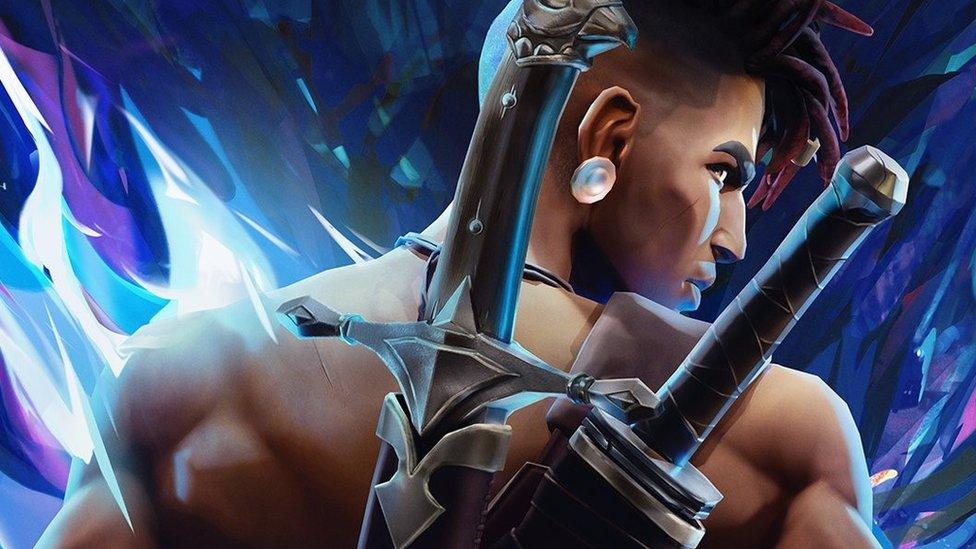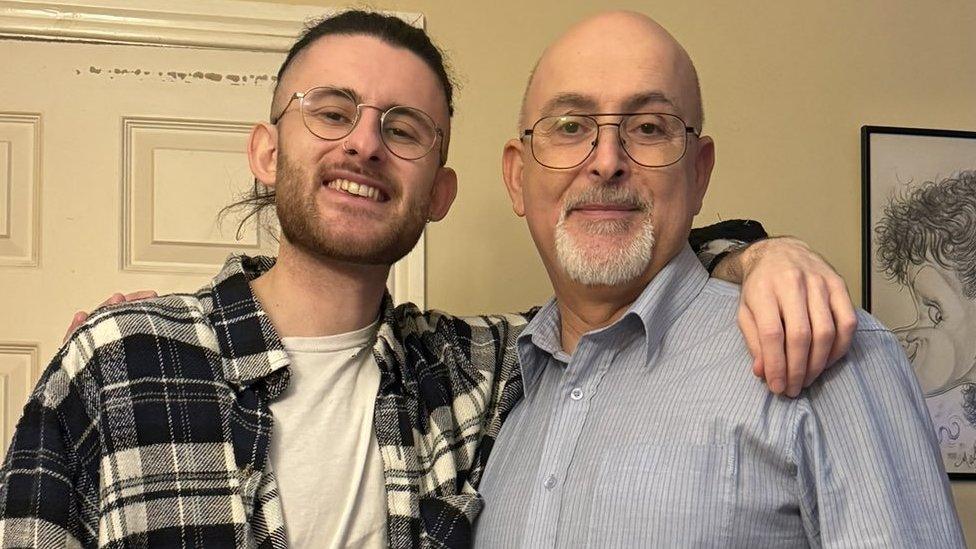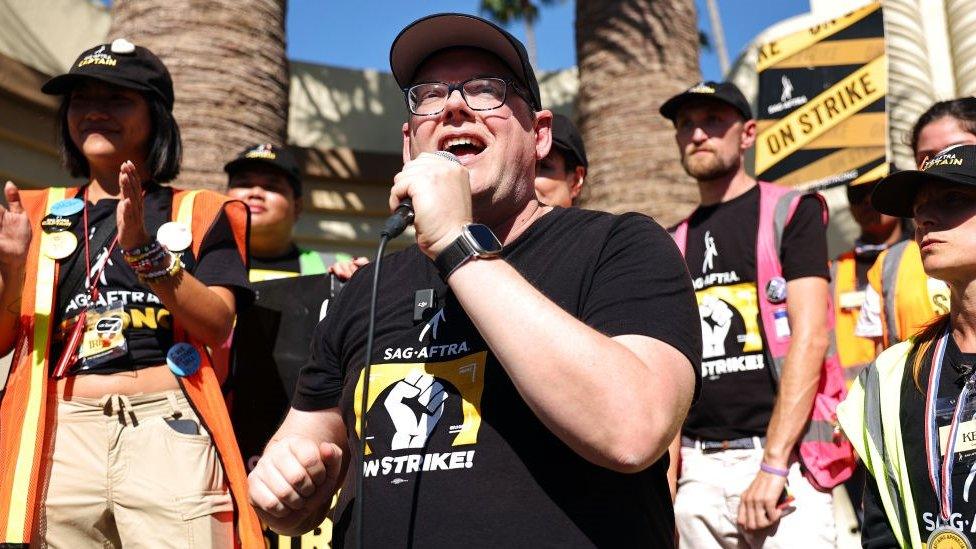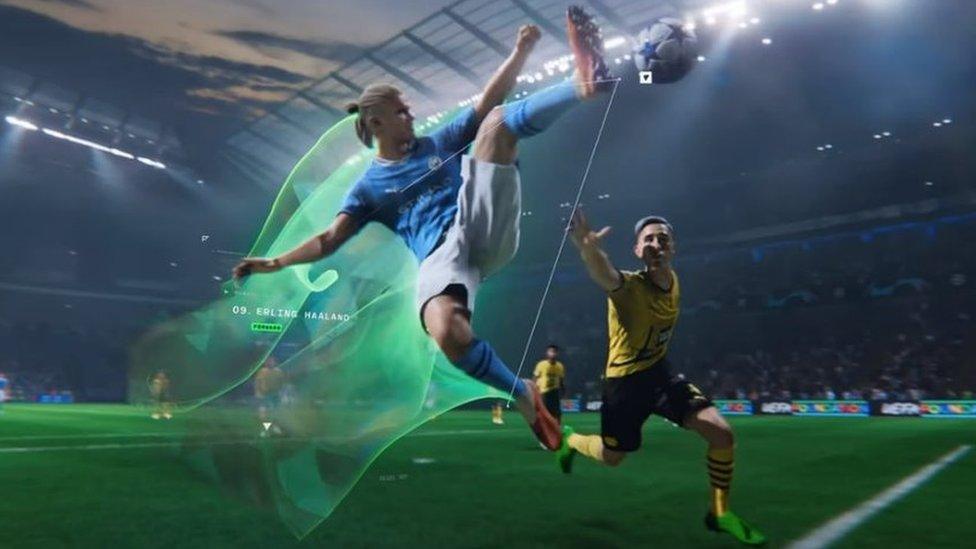First Prince of Persia game in 14 years voiced in Farsi
- Published

Sargon is the main character in the new game - rather than the previously unnamed Prince
The first new version of cult video game Prince of Persia in 14 years has been released, called The Lost Crown, and it is the first edition in the series to be fully voiced in Farsi.
The franchise draws heavily on Persian mythology and Iranian culture, but until now has always been in English.
The developers say they want to "depict and respect Persia and Iran".
Game fan Sam Mandi-Gohmi said it was "brilliant" that representation was being taken more seriously.
"When I saw the tweet announcing Farsi would be a full game audio option for The Lost Crown, I half thought it was a joke," said Mr Mandi-Gohmi, who lives in the UK.
"I grew up in England to an Iranian father, and often when I was younger we'd play games together, as it wasn't something that was significant in his childhood.
"I rushed to show my dad it - he laughed and translated alongside in disbelief."

Sam with his dad
Sam said previous games in the series, released in the UK in the 1990s and 2000s, did not have characters who "appeared fully Iranian".
"Now, it's not 2003 any more and representation in media is a significant consideration for developers - that's brilliant - but there is still basically zero Iranian representation within Western media," he said.
Modernising the game
The game is the first in the series to be made by Ubisoft Montpellier, a subsidiary of Assassin's Creed developer Ubisoft.
"From the start, we wanted to be able to depict and to respect Persia and Iran," said the game's designer Mounir Radi.
"It was natural for us to say, if we are going into this culture, we have to be true to this culture, we have to do this."
The makers also attempted to modernise the game - which is the first in the series since 2010's The Forgotten Sands, aside from spin-offs and remakes.
The graphics - which draw inspiration from Sony's animated smash hit Into the Spider-Verse - have been updated.
But another part of modernising the game involved making it authentic in a way the series never was before, for example by weaving elements of the Zoroastrianism religion - which was founded in present-day Iran - into the gameplay.
The game's producer Abdelhak Elguess told the BBC they were "very proud" to have made the changes.
"We have so many people from Persian cultures that are very happy," he said.
Representation matters
Emad Saedi has been a fan of the games since he was a child, when he connected with the series' cultural references to Persia, but says something always felt off.
"Those games were missing a fundamental element of the culture the prince came from: language," he said.
"My friends and I always had this question that if he's a Persian prince, how come he speaks English, or any language except Persian? Isn't that odd?"
Emad said it is a "huge step forward" to include the language, in part because he felt Iran and Persian culture are "under-represented in today's world".
"In a world that is saturated with Western culture content, seeing something from other parts of the world feels like a breath of fresh air, especially from a hidden gem like Iran," he said.
"It feels like we are finally being seen after being ignored for many years.
"There are many wonderful stories in our culture with massive commercial potential - I hope the entertainment industry recognises this opportunity and continues to invest in them."
- Published11 January 2024

- Published9 January 2024
